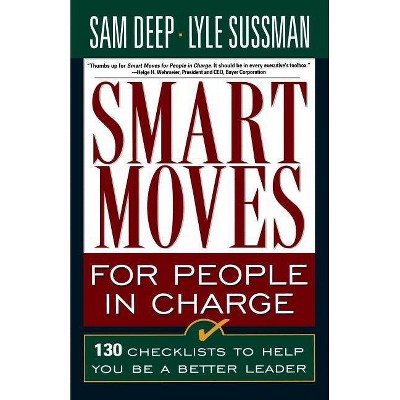About this item
Highlights
- An "essential guide" (Beverly Gage, Pulitzer Prize-winning author of G-Man) to how the Espionage Act gave rise to a vast American security state that keeps citizens in the dark In State of Silence, political historian Sam Lebovic uncovers the troubling history of the Espionage Act.
- About the Author: Sam Lebovic is a professor in the department of history and art history at George Mason University.
- 464 Pages
- History, United States
Description
About the Book
"The Espionage Act was passed in 1917 to prosecute spies and critics during World War I. And yet, after a century of piecemeal revisions, the Espionage Act still forms the basis of our national security architecture today - a tool that lets the government keep an untold amount of information secret, without ever justifying the need for that secrecy. In State of Silence, political historian Sam Lebovic uncovers the troubling history of the Espionage Act and the shaky foundations on which our security state was built. The Espionage Act began as a series of vague statutes. Over time and aided by interventions from the executive branch and the courts, it became the basis of a patchwork system for protecting state secrets. Early drafts of the Act gave the president the authority to stop the presses. That provision was struck down after public outcry over freedom of speech, but the resulting legal ambiguities left room for decades of distortion as lawmakers leveraged Cold War paranoia into ever-tightening security. The resulting system for classifying information, Lebovic points out, is absurdly cautious: nearly 80 million documents are classified each year, and the system costs the government more than $18 billion annually to maintain. Aside from being costly, this system is shrouded in secrecy, hiding information from citizens in a way that Lebovic argues is fundamentally antithetical to our democracy. When individuals do try to make this information public, they're punished for it. As Lebovic shows, prosecuting whistleblowers (instead of journalists) has been built into our national security system from the beginning. Far before Julian Assange and Chelsea Manning, he shares with us the near-forgotten story of Colonel John Nickerson, the first whistleblower prosecuted under the Espionage Act in 1956 - and a proud Army man who had no idea that his sharing of information could be considered illegal. Finally, Lebovic calls for broad and sweeping reform, proposing a new approach to securing state secrets, one that places the interests of the people first from the very beginning. Shedding new light on the bloated governmental security apparatus that's weighing our democracy down, State of Silence offers the definitive history of America's turn toward secrecy--and its staggering human costs"--Book Synopsis
An "essential guide" (Beverly Gage, Pulitzer Prize-winning author of G-Man) to how the Espionage Act gave rise to a vast American security state that keeps citizens in the dark
In State of Silence, political historian Sam Lebovic uncovers the troubling history of the Espionage Act. First passed in 1917, it was initially used to punish critics of World War I. Yet as Americans began to balk at the act's restrictions on political dissidents and the press, the government turned its focus toward keeping its secrets under wraps. The resulting system for classifying information is absurdly cautious, staggeringly costly, and shrouded in secrecy, preventing ordinary Americans from learning what their country is doing in their name, both at home and abroad.Shedding new light on the bloated governmental security apparatus that's weighing our democracy down, State of Silence offers the definitive history of America's turn toward secrecy--and its staggering human costs.
Review Quotes
"Beautifully written, filled with deft character sketches and political context, this is a thought-provoking book for general readers as well as scholars."--American Historical Review
Named a Best Book of 2023 by the New Yorker
"A timely new book....argues, with some urgency, that the act should be replaced."--New Yorker
"A riveting account of the rise of the national security state and its ongoing distortion of American politics."
--Publishers Weekly (starred)
"A vital investigation of a 'controversial, confusing law.'"
--Kirkus (starred)
"Lebovic is a conscientious historian who has clearly researched his subject in minute detail. Ardent students of the history of espionage will find much of interest in the detailed chronicle."
--Booklist
"From one of the finest historians writing today, State of Silence is a deeply disturbing and utterly fascinating account of the US government's disastrous addiction to secrecy. A spectacular achievement."
--Daniel Immerwahr, author of How to Hide an Empire
"In State of Silence, Lebovic provides a fast-paced and eminently readable history of the role that secrecy plays in America's national security regime, and of the complex and controversial law that lies at the heart of it, the Espionage Act. Invaluable reading for anyone wrestling with the tensions between secrecy and national security on the one hand, and democracy and freedom of speech on the other."
--Scott R. Anderson, Brookings Institution
"A thoughtful and much-needed study of one of the most controversial laws in United States history. From World War I through the Trump indictments, the Espionage Act has shaped some of our most dramatic political moments. Sam Lebovic's book is an essential guide to this history of trial and error--and to the law of unintended consequences."
--Beverly Gage, Pulitzer Prize-winning author of G-Man
About the Author
Sam Lebovic is a professor in the department of history and art history at George Mason University. He is the author of the award-winning Free Speech and Unfree News and A Righteous Smokescreen. His work has appeared in the Los Angeles Review of Books, Boston Globe, Washington Post, and more. He lives in Washington, DC.
Shipping details
Return details
Guests also viewed












